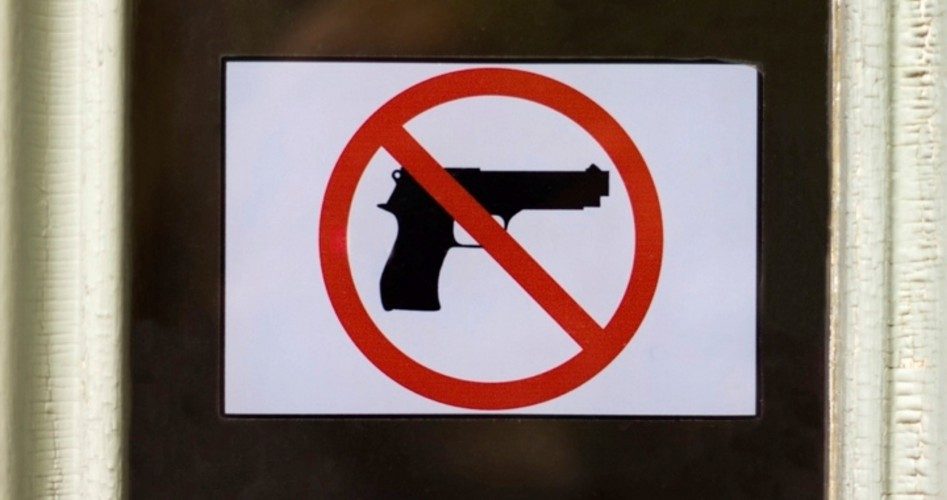
Police in Florida have reportedly confiscated lawfully owned and purchased guns from about 450 citizens in that state under the authority of a law passed in the wake of the Parkland shooting.
Governor Rick Scott signed the Risk Protection Order just three weeks after a gunman killed 17 people at the Marjory Stoneman Douglas High School. Provisions of that law require that firearms and ammunition be seized from anyone determined by a judge to be a danger to himself or to others. The measure does indicate that the removal of the weapons should be temporary.
Prior to confiscation of the weapons and ammunition, a petition seeking the seizure must be filed by “a law enforcement officer or law enforcement agency.” For the order to take effect, a circuit court judge must grant the petition after holding a hearing.
Sergeant Jason Schmittendorf of the Pinellas County Sheriff’s Office told local TV station WFTS-TV that some 200 firearms have been seized as well as “around 30,000 rounds of ammunition” in Pinellas County.
Pinellas County has employed five men to do nothing but handle the filing of Risk Protection Orders and at the time of publishing this article, the orders have led to 64 hearings. According to a Fox News report, nearby Broward County has filed 88 such orders since the statute went into effect.
“It’s a constitutional right to bear arms and when you are asking the court to deprive somebody of that right we need to make sure we are making good decisions, right decisions and the circumstances warrant it,” Pinellas County Sheriff Bob Gualtieri commented in the WFTS story, speaking in defense of the “task force” now employed to carry out the confiscation orders.
The WFTS news story reported that every petition filed in Pinellas County has been granted.
One of the first victims of this “legal” disarmament was an Army veteran from whom police confiscated an AR-15. Here is the story as reported by Fox News:
Jerron Smith’s gun was seized when he refused to surrender it voluntarily, the Broward County Sheriff’s Office said at the time. The officers also seized a .22 caliber rifle he owned, hundreds of rounds of ammunition, a bump stock and numerous other weapon-related items.
It is important to remember that all of these weapons and ammunitions were lawfully purchased by Smith.
Although most criticism of this new “law” has focused on its violation of the rights protected by the Second Amendment, there is something of an ex post facto element, as well.
Article I, Section 9 of the U.S. Constitution declares that “no ex post facto law shall be passed.”
Black’s Law Dictionary defines an ex post facto law as “A law passed after the occurrence of a fact or commission of an act, which retrospectively changes the legal consequences or relations of such an act or deed.”
How can this new Florida law be classified as anything else?
Certainly some — if not all — of the people from whom the police have confiscated these firearms purchased those guns legally. Thus, if a Risk Protection Order makes owning that gun illegal, isn’t that the very definition of an ex post facto law?
There are those who will argue that the law does not criminalize buying the weapon, but rather the possession of it after one has been deemed “unfit.”
But that does not alter the fact that the new law changes the legal consequences of the act (buying a weapon), and thus violates the prohibition on ex post facto laws.
The eminent founding-era jurist St. George Tucker described ex post facto laws as “odious” and “formidable.” He gave thanks in his Commentaries on Blackstone that he could not cite a single case of an ex post facto law having been passed in his home state of Virginia.
Not so in Florida, it would seem.
Of course, Article I does not set out the powers and limitations of the Florida legislature. That is accomplished by that state’s constitution.
Here’s Article I, Section 10 of the Florida Constitution: “No bill of attainder, ex post facto law or law impairing the obligation of contracts shall be passed.” Uh oh.
The Second Amendment does not contain exceptions. There is no provision of that amendment allowing for the disarmament of “dangerous” or “unfit” people.
Lest anyone forward the “Second Amendment doesn’t apply to the states” argument, Article I, Section 8 of the Florida Constitution similarly protects the right to keep and bear arms.
Florida’s Risk Protection Order statute is yet another example of a reactionary abuse of power. It is simply the rulers’ way of using tragedy as a pretext for tyranny. Despite the rhetoric, members of the Florida legislature and the governor of that state surely know that there is no law, regulation, or executive order that could ever dissuade someone from committing murder in cold blood. The very premise is laughable. Such acts are the result of mental instability and are the product of a perversion of purpose inscrutable to most regular folk.
No mind.
In Florida, it would seem, the legislature may violate its own constitution — and that of the United States — by passing and enforcing ex post facto laws and by denying citizens of their God-given right to keep and bear arms.



